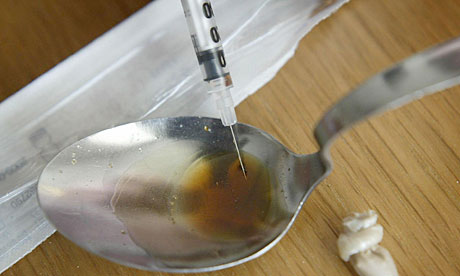Fascinating new research about how a specialist court working with drug-addicted and alcoholic parents is making a real difference in keeping troubled families together and, where that’s not possible, finding new homes for vulnerable children more speedily than through conventional care proceedings.
According to the Brunel University and the Nuffied Foundation, over one-third (39%) of mothers coming before the family drug and alcohol court (FDAC) were reunited with their kids, compared with just over one in five (21%) in ordinary care proceedings.
Drugs or alcohol are a significant factor in two-thirds of cases where care proceedings are considered. I spent a day sitting in FDAC two years ago. Beforehand, Nick Crichton, resident district judge at the Inner London family proceedings court, offered a shocking view from the bench of dealing with addicted mothers. “We are sometimes removing the fourth or fifth child, and sometimes the seventh or eighth child from the same mother for exactly the same reasons,” he told me. “Nothing changes and nothing has been done to help them achieve change.”
Crichton lobbied for the creation of a court that would be a radical attempt to break what he calls the “intergenerational cycle” of self-destructive behaviour. He referred to one psychiatric report where the mother said “every time they remove a child, the only way that I can deal with the pain of the loss is to get pregnant again”.
“I’ve had women scream at me across the court: ‘If you take this one away from me I’ll go on having children until you let me keep one,’” he adds.
The FDAC pilot scheme is co-funded by the Department of Education, Ministry of Justice, Home Office, Department of Health as well as three London local authorities (Camden, Islington and Westminster). It works with parents, social workers and rehab staff to combat addictions and, if possible, keep families together. The same judge presides throughout the life of a case and mothers are required to appear before the court on a regular basis.
I spoke to Crichton again this week to discuss the Nuffield/Brunel findings. What was so different about his court? Somewhat surprisingly, he drew an analogy with WeightWatchers. “If you know you have to come back every two weeks and answer for the last two weeks to the same person, there is an enormous incentive to stay on track – particularly if everyone who is around you is interested in what you do and want you to succeed. It puts a smile on your face to come back and stand on the scales and say, ‘I’ve lost another 3 pounds or I’ve stayed clean for another 14 days.’”
The research reported that it took on average eight weeks longer for children coming through FDAC to be reunited with their parents. The researchers called this a “purposeful delay”, allowing families to get derailed lives back on track. It’s also significant to note that it took on average seven weeks less for FDAC children to be placed in a permanent alternative home (51 compared with 58 weeks) when things don’t work out.
FDAC has funding for another year. There has to be a question mark over its future under a coalition government that has already announced a sweeping court closure programme. It was a point made by Richard Garside of the Centre for Crime and Justice Studies on Radio 4′s Today programme on Monday. He noted that it took five years “with a supportive government under a benign economic climate to get one pilot off the ground”. We’re in a very different climate now.
I have been blogging about access to justice and, in particular, the legal aid reforms over the past few months. Last week, Des Hudson, chief executive of the Law Society, argued that while the legal aid cuts added up to £350m on paper, they failed to take into account the wider knock-on costs to other government departments if they scrap publicly funded legal advice. It is likely much of the cost savings of the proposed legal aid cuts will be illusory. Citizens Advice reckons that for every £1 spent on legal aid on debt advice, the taxpayer could save £2.98 on those knock-on costs, and for every £1 on benefits advice, £8.80.
The Nuffield/Brunel researchers weren’t commissioned to conduct a cost-benefit analysis of FDAC, identifying cost savings to the taxpayer further down the line (foster care, court and care proceedings, rehab, etc). But such savings must flow. Their report did find that the average cost of an FDAC case was £8,740. If ministers do turn their gaze to FDAC, there needs to be some consideration of both those savings as well as the human misery spared by effectively dealing with addiction and keeping kids within their families where possible.
Jon Robins is a freelance journalist and director of the research company Jures which is running the Justice Gap series looking at different aspects of justice.
MY THOUGHTS
I blogged about this family related court the other day, and i am very pleased to see and read this follow up article.
This cause should of been brought into action a good few years ago, and will help many pregnant women in the early stages, to seek help and support, with regards to any alcohol and drug misuse,and will allow many Mothers, with support and counseling to keep their babies.
And with regards to any ongoing care proceedings, the former,could allow time for parents to change their life style for the better, and hopefully the golden reward and aim, to have their children returned to their care.
The report states that over 30% of Mothers that have been through this specialist court, have had their children returned.
LONG MAY IT CONTINUE



You need to be a member of Parents Against Injustice to add comments!
Join Parents Against Injustice